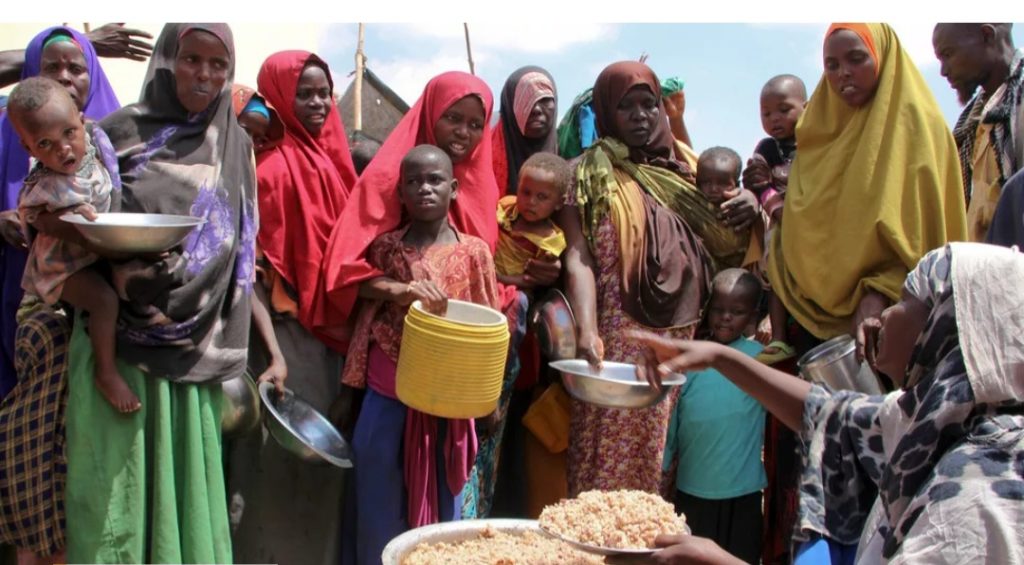
Esther Imonmion
The United Nations World Food Program (WFP) announced on Friday, October 3, 2025, that it will suspend food assistance to hundreds of thousands of people in Somalia, where millions are grappling with the compounded effects of climate change, conflict, and hunger.
WFP said the number of Somalis receiving emergency food aid will drop from 1.1 million in August to just 350,000 in November, citing “critical funding shortfalls.”
“We are seeing a dangerous rise in emergency levels of hunger, and our ability to respond is shrinking by the day,” said Ross Smith, WFP’s Director of Emergency Preparedness and Response. “Without urgent funding, families already pushed to the edge will be left with nothing at a time when they need it most.”
According to the latest U.N. report, 4.6 million Somalis are facing crisis levels of hunger, with 1.8 million children projected to suffer acute malnutrition this year. Of these, 421,000 children are severely malnourished, while WFP has so far reached only 180,000.
Somalia’s hunger crisis is fueled by recurring droughts and floods linked to climate change, coupled with decades of insecurity. The al-Qaida-linked militant group al-Shabab continues to control parts of the country, further complicating aid delivery.
Cuts in U.S. foreign assistance have also deepened the strain on humanitarian agencies already struggling to meet surging needs.
WFP estimates it requires $98 million to “sustain a minimum of life-saving operations for 800,000 people through the lean season until March 2026.”
